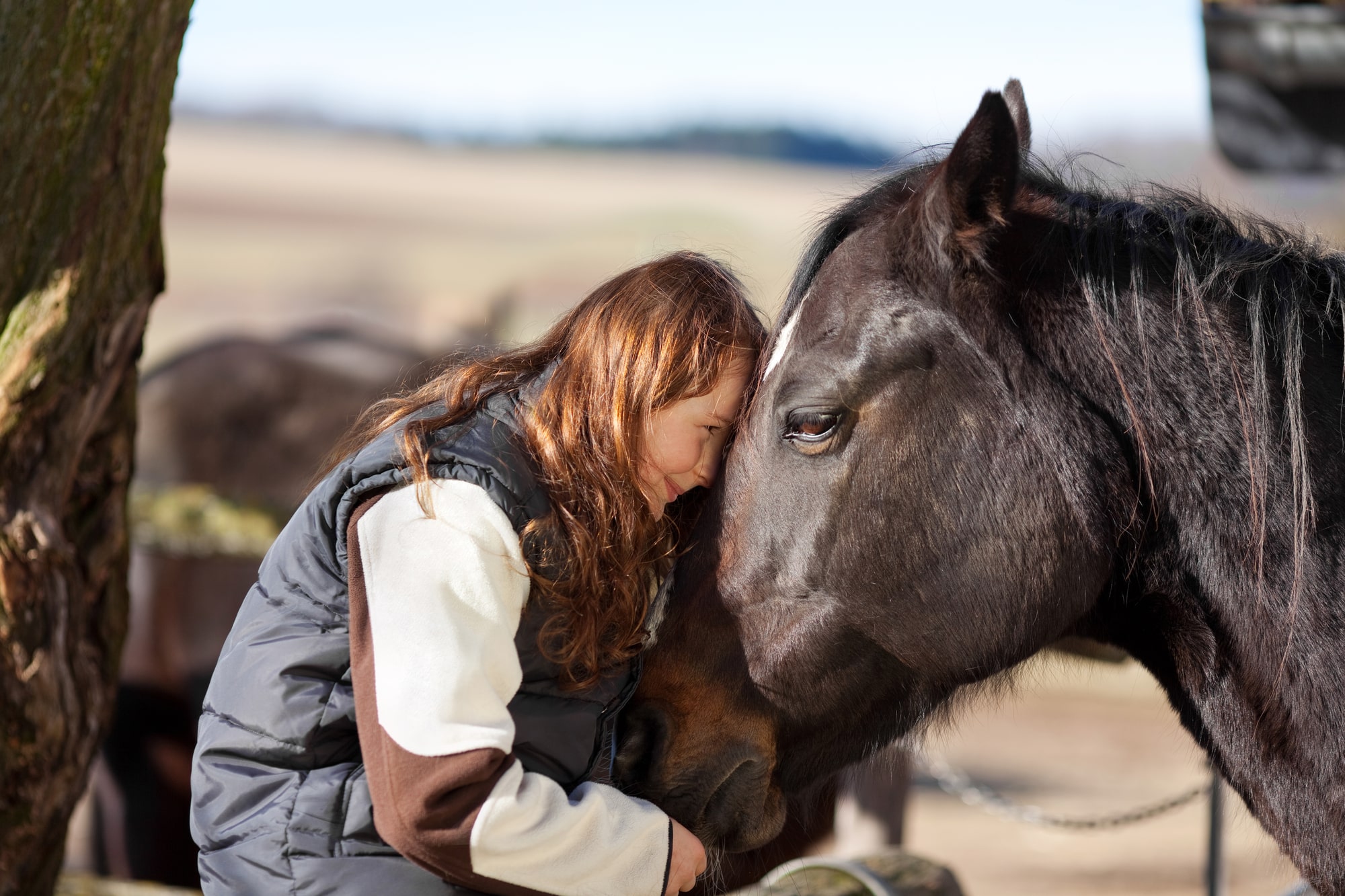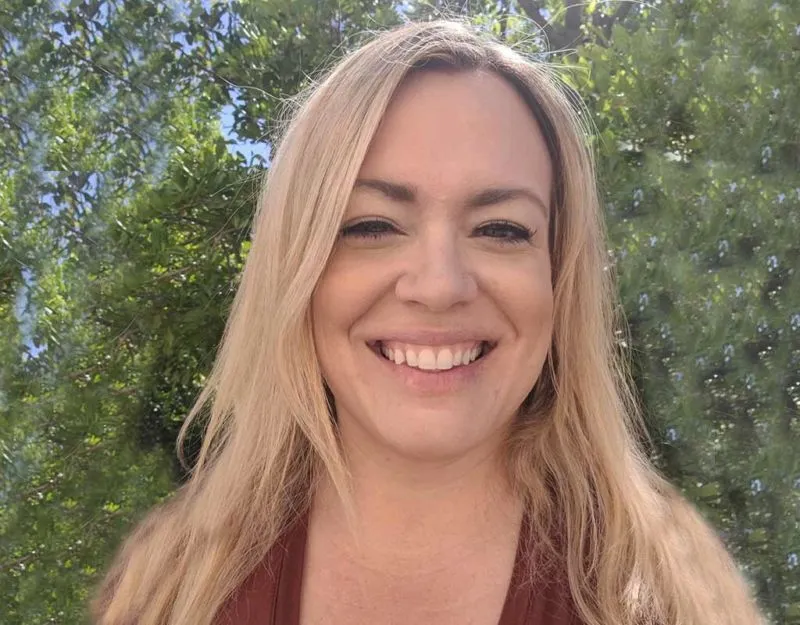
Addiction causes long-term changes in the brain, making it difficult to stop drinking or using drugs alone. That said, achieving long-term addiction recovery is possible if you’re willing to seek help from experienced professionals. At Ranch Creek Recovery, we offer several types of mental health treatment for individuals struggling with addiction. We give you the support you need to stop using substances, form healthy relationships and improve your social skills.
Our holistic approach is designed to help you heal your mind, body and spirit. We offer several experiential therapies as an alternative to the 12-step programs available at other treatment centers. Equine therapy, also known as horse-assisted therapy or equine-assisted therapy (EAP), uses horses to help participants learn more about themselves and the world around them. Learn more about the benefits of participating in an equine therapy program to recover from addiction.
If you’re struggling with substance abuse, you may have difficulty trusting yourself and making good decisions. Drug addiction and alcohol addiction often lead to a loss of confidence. Equine therapy, like other forms of animal-assisted therapy, allows you to learn the skills you need to improve your relationships and take control of your life.
Although there are many equine therapy therapeutic riding programs, equine-assisted therapy for addiction is much more intensive. Horse therapy is more than just riding horses; it involves building a relationship with a horse and learning to care for it. As you care for the horse, you feel a greater sense of responsibility, which may help you gain control over your addiction.
Horses are incredibly skilled at sensing a person’s emotions. If you’re dealing with substance abuse, shame may prevent you from sharing your true feelings during individual therapy, group therapy and family therapy sessions. When you participate in equine therapy for addiction, hiding your emotions is a little more challenging. Once you have an emotional connection with a horse, opening up about what you’re feeling becomes easier. Researchers posit that some type of “emotional transfer” occurs between humans and horses, helping you release negative emotions and get on the path to long-term recovery.
When you’re struggling with addiction, it’s easy to feel like everyone is judging you, from your closest friends to the people you see at work daily. This feeling intensifies whenever you make a mistake, such as missing an important deadline or forgetting to attend a child’s dance recital. Alcohol and drug abuse also make you judge yourself. You may ask yourself, “Why did I do that?” or “Why am I always messing up?” These judgments hurt your self-esteem and make opening up during traditional therapy. difficult
Unlike people, horses are nonjudgmental. According to researchers from Tampere University in Finland, horses love and accept anyone who treats them well. Participating in equine therapy allows you to spend time around nonjudgmental companions, improving your confidence and making it easier to work on your mental health issues.
Equine therapy helps treat addiction because horses respond directly to human emotions. In fact, a horse’s behavior may change drastically based on the emotions of the people around it. When you work with horses, you must be able to regulate your emotions and avoid transferring negativity. Therefore, equine-assisted therapy helps with impulse control and has been shown to stimulate emotional growth. Equine therapy also helps you form positive relationships with others, allowing you to improve your social skills and focus on sharing positive emotions instead of negative ones.
A common misconception about this holistic approach to addiction treatment is that all you do is go horseback riding. Some programs include riding, but equine therapy is more about doing the work necessary to form a positive relationship with a horse. Equine-assisted therapy programs typically include groundwork and horsemanship, equine-assisted learning and equine-assisted psychotherapy. Each component works with the others to help you gain confidence and improve your mental health.
It’s natural to get excited when encountering a horse for the first time. However, if you’re enrolled in equine therapy, however, it’s more important to establish yourself as a leader. Horses are herd animals, so they need a leader to show them what to do and how to behave. Groundwork helps a horse feel secure and positions you as the herd’s leader, which can help you build your confidence. During groundwork exercises, you focus on getting the horse to follow your lead. It’s also important to keep the horse out of your personal space. When done correctly, these exercises build trust with the horse and help you improve your communication skills.
Equine therapy is also helpful for learning humility and respect, which can aid your recovery from drug or alcohol addiction. Horsemanship involves treating a horse with respect and understanding how to use its natural behavior in your favor. As part of equine therapy, horsemanship helps you learn how to handle horses appropriately.
Equine-assisted learning helps participants develop valuable life skills. If you enroll in an EAL program, you’ll work with a facilitator with extensive experience handling horses. EAL facilitators also receive specialized training in conducting experiential learning activities, making them well-qualified to offer equine therapy. Although some EAL programs include mounted activities, they focus more on groundwork and horsemanship. Each program aims to develop skills you can use to recover from addiction and stay on the right path.
Equine-assisted psychotherapy is a type of equine therapy that combines traditional therapy with equine activities. During this type of therapy, you work with two professionals: one who has experience in psychotherapy and one who has experience handling horses. No two programs are the same, but EAP usually features aspects of cognitive behavioral therapy, gestalt therapy and experiential psychotherapy. This type of equine therapy may be helpful for the following:
The benefits of equine therapy have been studied extensively, with researchers focusing much of their attention on how this experiential treatment benefits a person’s emotional well-being. Researchers have also studied how equine therapy helps with addiction recovery — specifically, how it helps reduce cravings and lower a person’s risk of relapse. These are some of the most apparent benefits of participating in equine therapy.
Equine-assisted therapy sessions typically focus on improving your emotional well-being. Sharon White-Lewis, a researcher from the University of Missouri, reports that equine therapy increases empowerment, self-esteem, confidence and self-presence. EAT also gives participants a sense of freedom, enabling them to break free from addiction and improve their lives.
Many people engage in substance abuse as a response to their negative emotions. For example, if you feel anxious, you may drink multiple glasses of wine to calm down. Once you start a habit of drinking or using drugs to cope with unpleasant emotions, you’re likely to experience cravings every time you feel stressed. Equine therapy helps reduce negative emotions, which may reduce your cravings and help you avoid substance use.
Many people with substance use disorders lack appropriate coping skills, making it difficult to overcome challenges without turning to alcohol or drugs. When you participate in therapy and other forms of addiction treatment, you learn how to avoid negative thought patterns and adjust your behavior accordingly. This can help you improve your coping skills, one of the most important tools for relapse prevention. Equine therapy helps you gain confidence and improve your self-esteem, which can help you build effective coping skills.
When you’re struggling with addiction, seeking help from experienced treatment professionals is essential. Ranch Creek Recovery has a comprehensive residential treatment program, giving you a safe environment to recover from the physical and emotional effects of drug or alcohol addiction. The program is completely tailored to your needs, ensuring you develop the skills to overcome substance abuse and get your life back on track.
To learn more about equine-assisted therapy or other addiction treatment options, call (877) 997-8931 to speak with one of our compassionate staff members.

Space is Limited. Call to Check Availability.
(877) 997-8931